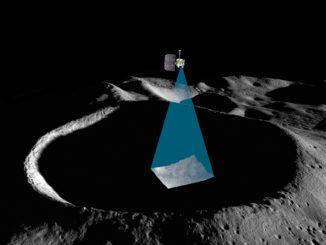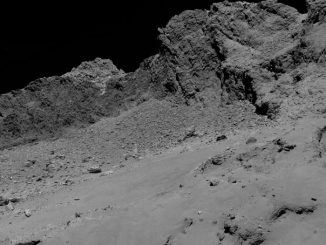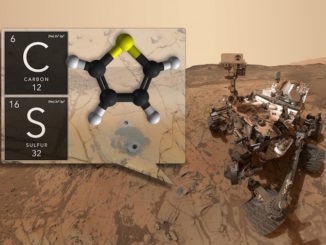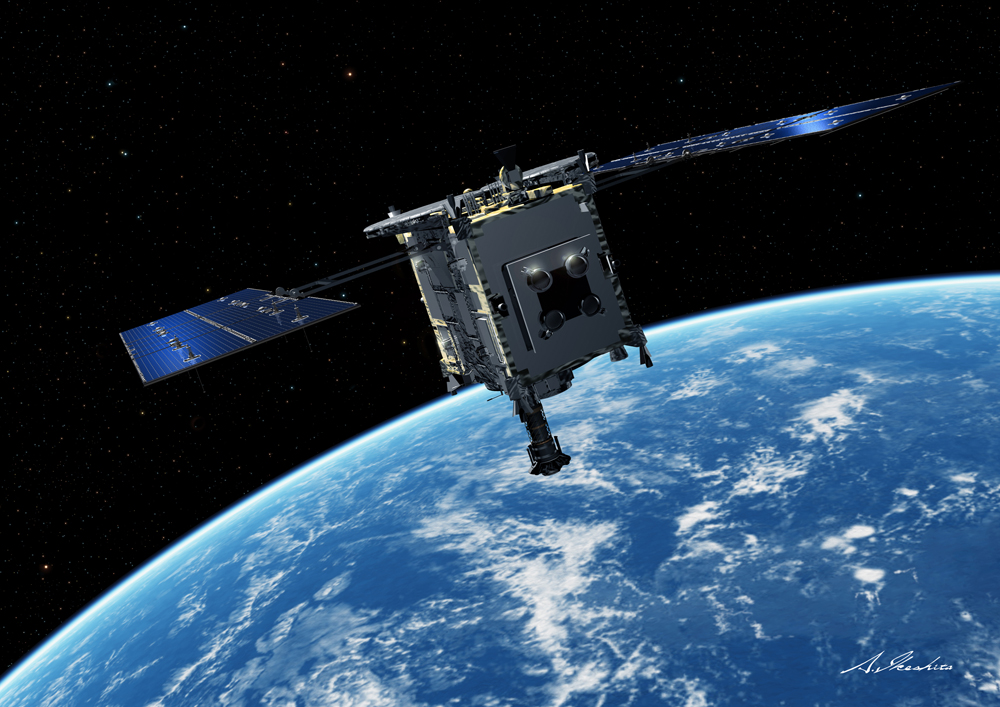
A Japanese space probe picked up just the right amount of speed when it flew by Earth earlier this month, using the planet’s gravity to slingshot toward an asteroid scientists think is a primordial leftover from the ancient solar system, mission managers said Monday.
The Hayabusa 2 spacecraft passed about 3,090 kilometers (1,920 miles) above the Pacific Ocean near the Hawaiian islands Dec. 3, returning to Earth’s vicinity exactly one year after its launch from Japan.
Ground controllers intended to use Earth’s gravity to give the Hayabusa 2 spacecraft a boost, bending its trajectory to intercept asteroid Ryugu in June 2018 with the help of further steering impulses from the probe’s ion propulsion system.
Planetary flybys enable spacecraft to reach destinations that would otherwise require bigger rockets, raising mission costs and complexity.
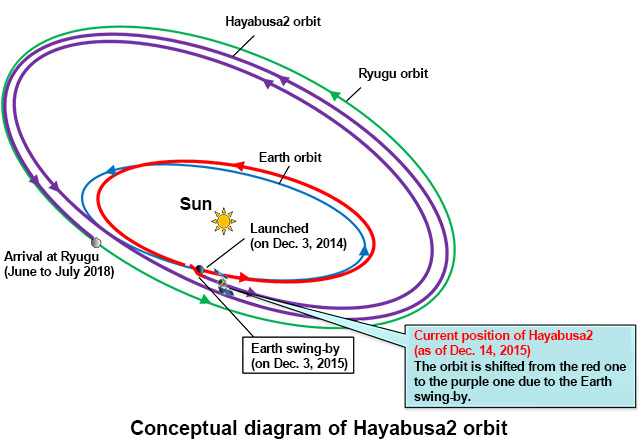
The results of the flyby showed Hayabusa 2 is on the correct path after the Dec. 3 encounter, which turned the probe’s orbit by about 80 degrees and increased its speed 1.6 kilometers per second (3,579 mph) relative to the sun’s position, according to the Japan Aerospace Exploration Agency, or JAXA.
The extra speed will propel Hayabusa 2 outward from Earth’s orbit toward Ryugu, a near-Earth asteroid that spends most of its time farther from the sun than Earth.
Hayabusa 2 is in good health after the Earth flyby, JAXA said in a press release Monday.
“I would like to express my deep gratitude to all pertinent parties and people and those who are supporting our operation,” said Yuichi Tsuda, Hayabusa 2’s project manager. “All the Hayabusa 2 project team members have been working together and will continue our challenging voyage.
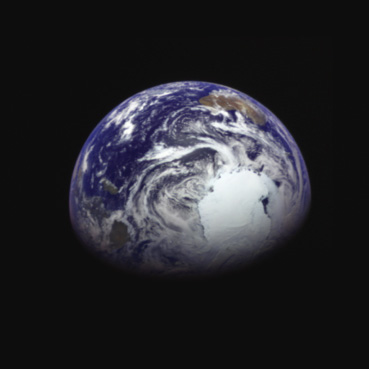
“The Hayabusa 2 gained orbit energy through the swing-by to leave the Earth,” Tsuda said in a statement. “The target is the asteroid Ryugu. ‘See you later, people on Earth!'”
As of late Sunday, U.S. time, the Hayabusa 2 spacecraft was 4.15 million kilometers (2.6 million miles) from Earth, about 10 times the distance of the moon.
Hayabusa 2 will spend about a year-and-a-half in the vicinity of asteroid Ryugu beginning in mid-2018, dropping four small landers — three from Japan and one from Germany — to the asteroid’s surface.
The main spacecraft itself will descend to the 900-meter (3,000-foot) asteroid several times, scooping up bits of rock for collection into a chamber. Hayabusa 2 will head back to Earth in 2020 and drop a landing capsule to a parachute-assisted touchdown in Australia with the asteroid material.
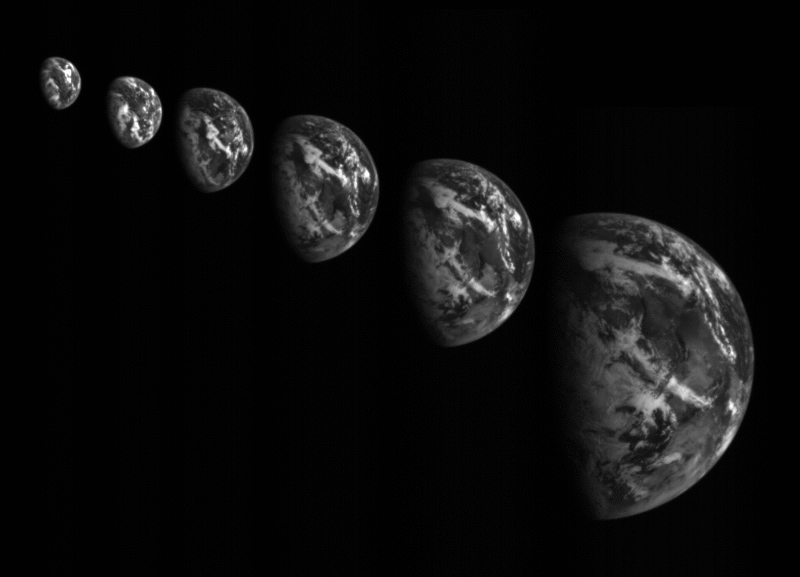
Hayabusa 2 is Japan’s second asteroid sample return mission.
The Hayabusa spacecraft visited asteroid Itokawa in 2005, but technical problems prevented the spacecraft from gathering the intended samples. Hayabusa successfully landed back on Earth in 2010, and scientists harvested microscopic specimens from the return capsule.
NASA plans to launch its own asteroid sample return probe named OSIRIS-REx in September 2016, heading to a different object to collect rocks and return to Earth in 2023.
Email the author.
Follow Stephen Clark on Twitter: @StephenClark1.

